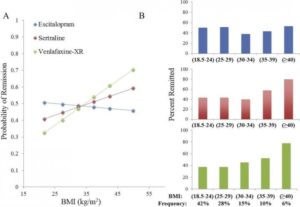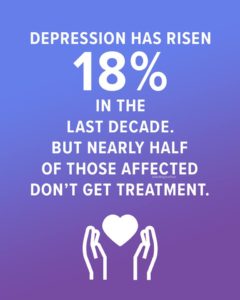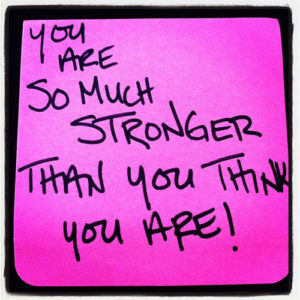I found this article today that totally hit home for me. I know it seems a bit off topic for a depression and bipolar support group, but I think many of us struggle with cleaning up clutter without it being emotionally draining. I hope you enjoy it as much as I do.
Author Archive for Austin Bailey – Page 3
Chris Cornell: When Suicide Doesn’t Make Sense from Psychology Today
Article By Julie A. Fast
Sometimes, people commit suicide and we are able to make some sense of why it happened. It’s scary and upsets our world, but on a basic level we think we understand. Robin William’s suicide comes to mind. He had a history of depression and his health was failing. We all wish he could have found more help, but I don’t think it was surprising as much as it was devastating and sad for the millions who loved him.
Then there are suicides that make no sense. The idea doesn’t fit with how we see the individual’s personal life or with how they describe their life in public. The partner or other loved ones are shocked and usually vehemently deny that the person was acting suicidal. Society likes to look for something deeper when they hear that the person wasn’t outwardly suicidal, such as a possible secret life.
I have a different opinion based on personal experience that I would like to share.
Click here to read the full article.
If you are a fan and his death is hitting you hard, now is a good time to take care of YOURSELF. He is at peace now. I believe this. We are the living and we are here to keep going. I am sad, but I’m not depressed. There is a difference.
If you need help, a crisis line is a good start.
People with bipolar disorder have an illness that gets triggered. We are strong. Get help if you need it.
I am going to celebrate the joy he brought to my life. This is the best way I can remember him.
If you have comments on this article, please share them on the Psychology Today website or on my Julie A. Fast Facebook page. You can find the post there where others have commented. I am also active on my Julie A. Fast Twitter page.
Thank you very much for the kind emails. Please know that due to the number I receive, I am not able to answer personally. If you are looking for coaching as a partner or partner, you can click here. If you want to talk with me about mental health, the best place to interactant is on Facebook. I often do live Q&A sessions.
Check out Mental Health America‘s website for more information
A new study is linking personalized bio markers to antidepressant effectiveness. This is another step towards ending the trial and error approach to prescribing antidepressants.
“The future of psychiatry is in a precision, personalized medicine approach to refining diagnosis and tailoring treatments accordingly. This study demonstrates that currently available markers are poised to improve patient outcomes without introducing new costs. Markers such as BMI are likely to complement others being developed out of neuroimaging and genomics,” added Dr. Williams.
Read the full story here
Even being part of England’s Royal family doesn’t make a person immune to emotional distress. The Duke and Duchess of Cambridge and Prince Harry of Wales are really opening up about all sorts of emotional topics, including new motherhood and the son’s loss of their mother, Princess Diana. The televised discussion is part of the Heads Together campaign to raise awareness and fight the stigma of mental health issues. Their latest video express that it’s #oktosay what’s going on emotionally.
To watch the video and learn more about the Heads Together campaign, click here
With suicide rates on the rise (9.6% in Missouri and 12% in Kansas since 2013), there is a movement happening locally and nationally to prevent suicide. Zero Suicide is using many tools including smartphone apps like MY3 and mystrength. The goal of the crusade is not to lower but eliminate suicide.
“You wouldn’t want an airline to say they hope to prevent crashes but they can’t prevent them all. With suicide, the goal should be zero.” Scott Perkins, NAMI, Missouri chapter.
Adolescent Anxiety: Tips Parents Can Use To Help Their Teen During Stressful Times
Adolescence can be a challenging time for every family, but sometimes the pressures from school, peers, and family dynamics begin to take a significant toll. Anxiety does not always progress to the level of being an anxiety disorder or a situation that needs professional help, but parents certainly want to recognize the signs of distress in their teens and help them to work through their issues. It can be challenging to find the right balance here, but experts have plenty of tips to help make it easier.
Recognize the signs of anxiety in adolescents
Anxiety can take a serious toll on adolescents, as they are often facing stress at school, in peer relationships, and oftentimes at home or at a workplace as well. Some of the signs of issues, notes the Women’s and Children’s Health Network, include trouble related to concentrating, feeling hopeful, or sleeping, and sometimes physical signs appear as well. When teens are having stomach issues and headaches, or generally feeling sick when stress is present, it may be time to take a step back and work on some coping strategies.
Teens will frequently turn to negative self-talk as anxiety escalates, so parents should focus on helping them turn this around to focus on positive self-talk. Relaxation techniques, such as visualization, focused breathing, or deep breathing, can be quite helpful and Adolescent Wellness suggests trying some guided imagery exercises. For example, an anxious teen can work to imaging a relaxing scene and then try to add details covering all of the senses. The teen would then pick a phrase or word that will help them recall that scene, and after some practice, using that word or phrase can help calm them down during times of stress.
Work on connecting with your child and listen to their concerns
Kids Health notes that when an adolescent is struggling with anxiety it is important to focus on getting exercise, quality sleep, and proper nutrition. Teens may lose sight of these basics, so this is where parents can have a significant impact. Of course, it can be challenging to do this in a way that seems supportive rather than overbearing. Making an effort to connect with your anxious adolescent is important during these difficult times, even though they may be inclined to withdraw and isolate themselves when their stress levels are high.
As Help Guide points out, when it comes to stress, anxiety, or depression in teens, it’s important not to ignore the issues. Begin a dialogue with your adolescent and be open to listening to what they have to say without judgment or being dismissive. Be careful not to come off as patronizing and acknowledge their feelings as you work on truly listening. Teens may resist opening up about these issues, but parents need to trust their instincts and be gently persistent in trying to connect during difficult times.
Professional help may become the best approach
Parents should not be afraid to connect with a therapist if their child is continuing to struggle. Anxiety can have a serious impact on an adolescent’s daily life and the family’s dynamics, and when this is the case, a professional can help shift things back on track again. If you aren’t sure if it’s time for a professional’s insight, connect with a therapist and get the ball rolling, as they will get the basics on the situation and share their insight regarding what should happen next.
Teen anxiety can become quite overwhelming and many adolescents have a difficult time working through their stress on their own. Whether the issues are related to family, friends, or academics, parents can try to connect with their child to open up a dialogue and help them learn some relaxation techniques that can alleviate some of the anxiety. Sometimes consulting a professional is useful as well and while it can take some serious work to help a teen work through their anxiety issues, some simple coping strategies can have a significant impact and ease the stress on everybody involved.
Special Thanks to Guest Contributor: Noah Smith
wellnessvoyager.com
[Image by Pixabay]
7 April 2017 – WHO is leading a one-year global campaign on depression. The highlight is World Health Day 2017, celebrated today. The goal of the campaign is that more people with depression, everywhere in the world, both seek and get help. Depression is the leading cause of ill health and disability worldwide. More than 300 million people are now living with depression, an increase of more than 18% between 2005 and 2015. Read more on the World Health Organization’s website here.
Bipolar often comes with a side of negative stigma, sometimes super-sized, even though we don’t ask for it. Many times that negativity comes directly from within, but have you stopped to think about what’s good about bipolar? Matthew Schmitz did in his article The Amazing Side of Bipolar Disorder. We often over look and under value our own capacity for good simply because of a diagnosis.
 A team of scientists at the Salk Institute for Biological Studies in La Jolla, California has trained a computer to be able to predict those with bipolar who will (or will not) be responsive to lithium treatments. Lithium is considered a miracle treatment for bipolar; but, unfortunately, only 30 percent of people taking it reap those benefits. Using a few cells and a powerful computer, the team has developed a method that is accurate 92 percent of the time. Breakthroughs like this are crucial to finding a better way to find the right medicine. Read the full article here. Learn more about the Salk Institute.
A team of scientists at the Salk Institute for Biological Studies in La Jolla, California has trained a computer to be able to predict those with bipolar who will (or will not) be responsive to lithium treatments. Lithium is considered a miracle treatment for bipolar; but, unfortunately, only 30 percent of people taking it reap those benefits. Using a few cells and a powerful computer, the team has developed a method that is accurate 92 percent of the time. Breakthroughs like this are crucial to finding a better way to find the right medicine. Read the full article here. Learn more about the Salk Institute.
Copyright © 2025 All Rights Reserved






